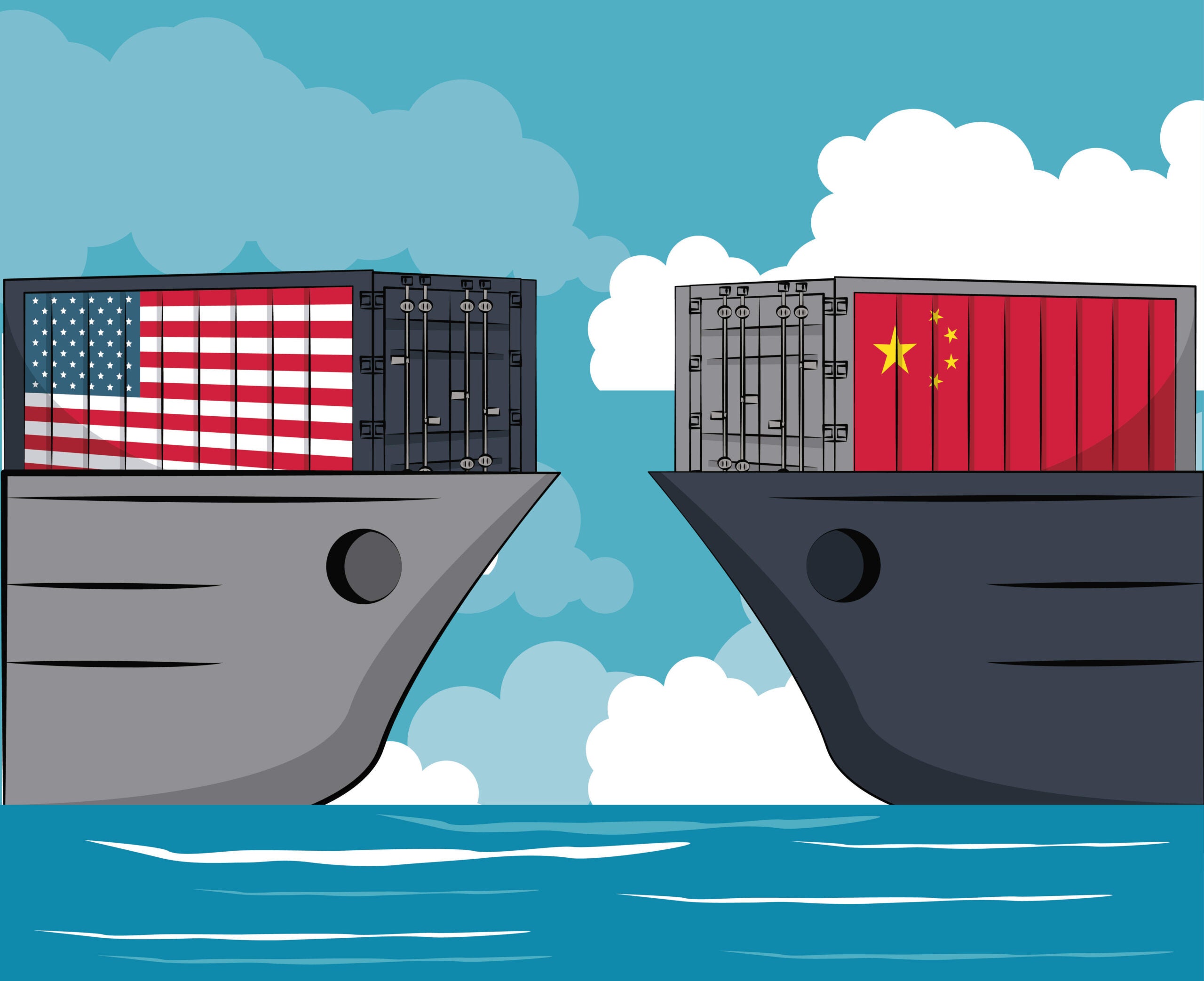
On Monday evening, the White House announced that it would be imposing new trade tariffs on $200bn worth of Chinese imports, as the US-China trade war heats up.
Coming into effect on 24 September, the US will impose a 10% trade tariff on some Chinese goods until the end of the year, amounting to around 40% of goods China exports to the country. As of January 2019, this will increase to 25% if Beijing and Washington fail to reach a deal.

Access deeper industry intelligence
Experience unmatched clarity with a single platform that combines unique data, AI, and human expertise.
In total, around 5,000 Chinese products will be affected, meaning very few goods would be spared from the heightened tariffs.
The US has warned that a retaliation from China would result in further tariffs on $267bn worth of additional goods. However, the East Asian country has already reacted by announcing tariffs of up to 10% on $60bn of US goods. In a statement, the Chinese government says this was a “forced response”.
This is the latest escalation in the ongoing trade war between the two countries. The US has already levied tariffs of 25% on $50bn worth of Chinese goods, which China responded with tariffs on American goods also worth $50bn.
In a statement, President Donald Trump explained that the reason behind the tariffs was “unfair policies” on China’s part:

US Tariffs are shifting - will you react or anticipate?
Don’t let policy changes catch you off guard. Stay proactive with real-time data and expert analysis.
By GlobalData“China is engaged in numerous unfair policies and practices relating to United States technology and intellectual property – such as forcing United States companies to transfer technology to Chinese counterparts. These practices plainly constitute a grave threat to the long-term health and prosperity of the United States economy.”
What are trade tariffs?
A trade tariff is a tax that is paid on a particular class of imports or exports. Tariffs are designed to raise revenue for a country and also protect domestic industry.
For example, even if it is cheaper to manufacture a particular type of good abroad, tariffs may mean that domestic producers can still compete.
The reasons behind Trump’s aggressive trade policy is to reduce the trade deficit that currently exists between the US and China and thus boost US industry. Other countries have been affected by Trump’s increasingly protectionist trade policies, after Washington announces tariffs on all imports of steel and aluminium, including metals from China, in March.
The two countries have been in talks over a new trade agreement, but as of yet have failed to reach a deal.
What products will be affected?
The list of affected products is extensive and features many household staples, including the following:
Food and drink:
Meat including pork, rabbit and many types of fish
Vegetables
Grains
Seeds
Preserves
Alcoholic and non-alcoholic beverages
Household products:
Freezers
Refrigerators
Air conditioning units
Sewing machines
Various types of furniture
Beauty products:
Perfume
Beauty powders
Shampoos
Deodorants and antiperspirants
Soaps
Clothing:
Handbags
Gloves
Fabrics
Hats
Other products:
Tobacco products
Various chemicals, minerals and metals
Photographic film
Pesticides
Baseball gloves
Various parts for vehicles
Animal hides
Dog leashes
Wood
Consumer favourite Apple, which manufacturers the majority of its goods in China, is notably absent, after being included in previous tariffs proposed in July. The Apple Watch and Apple’s wireless headphones have been spared this round of trade tariffs.
The full list of products hit by Trump’s latest tariffs can be found here.
What impact could this have on the US?
According to the Financial Times, the tariffs risks raising costs for American consumers and US businesses that rely on Chinese imports to be competitive. When the US introduced new tariffs on metal imports, the price of appliances in the country jumped 7%, and the latest tariffs could have a similar effect. According to The Guardian, they could cost the average family in the US an extra $160.
In a tweet, President Trump made it clear that he does not believe Americans will be negatively affected:
“Tariffs have put the US in a very strong bargaining position, with billions of dollars, and jobs, flowing into our country – and yet cost increases have thus far been almost unnoticeable. If countries will not make fair deals with us, they will be ‘tariffed!’”
However, several people have voiced concerns over the ongoing trade war, including members of the Republican Party. Some 45 trade unions and companies have also objected. Many fear that a worsening relationship with the world’s largest manufacturing base and the US’s biggest trading partner could negatively affect the country’s economy, especially if it fails to provide a significant boost to domestic manufacturing.







